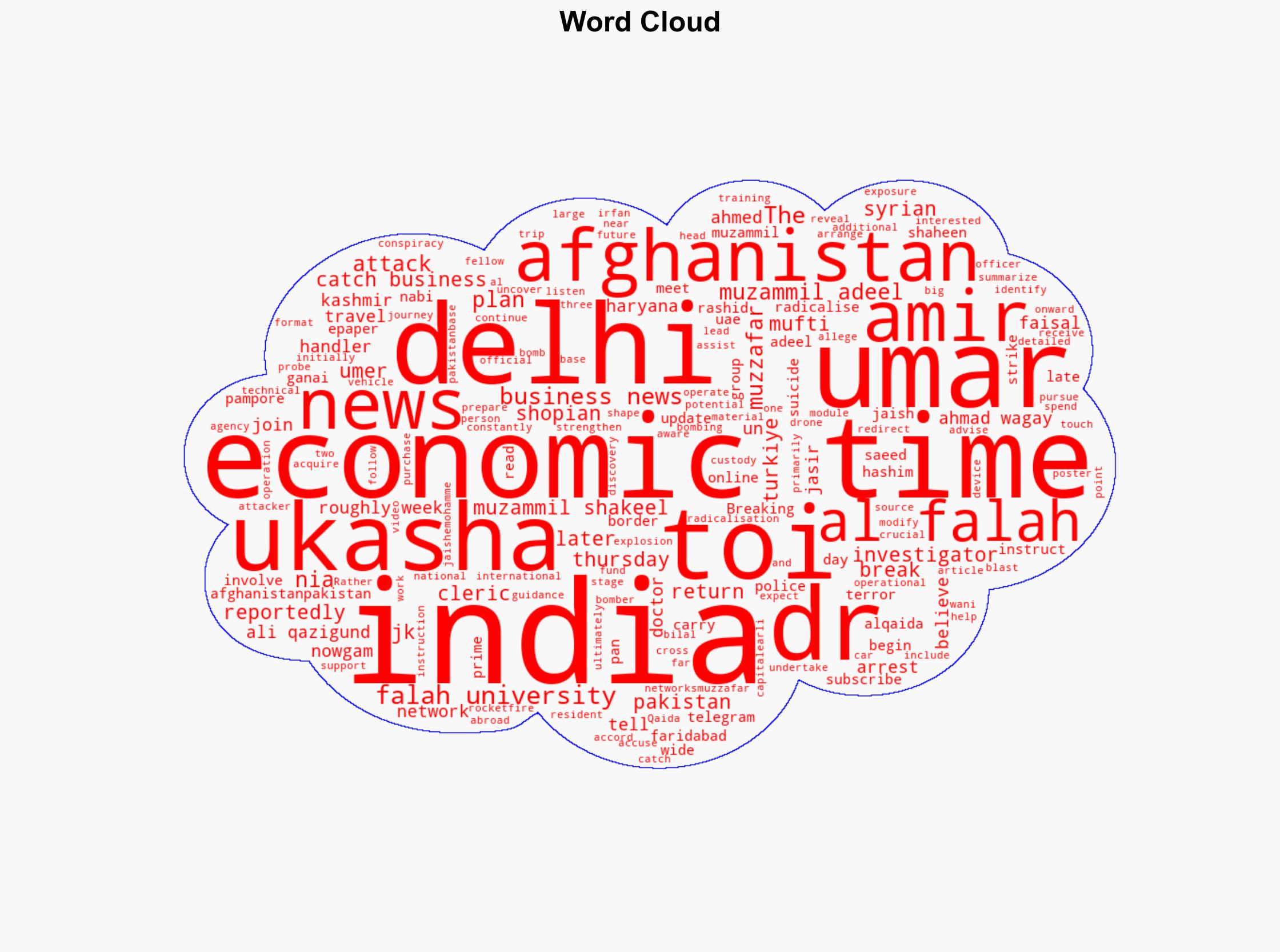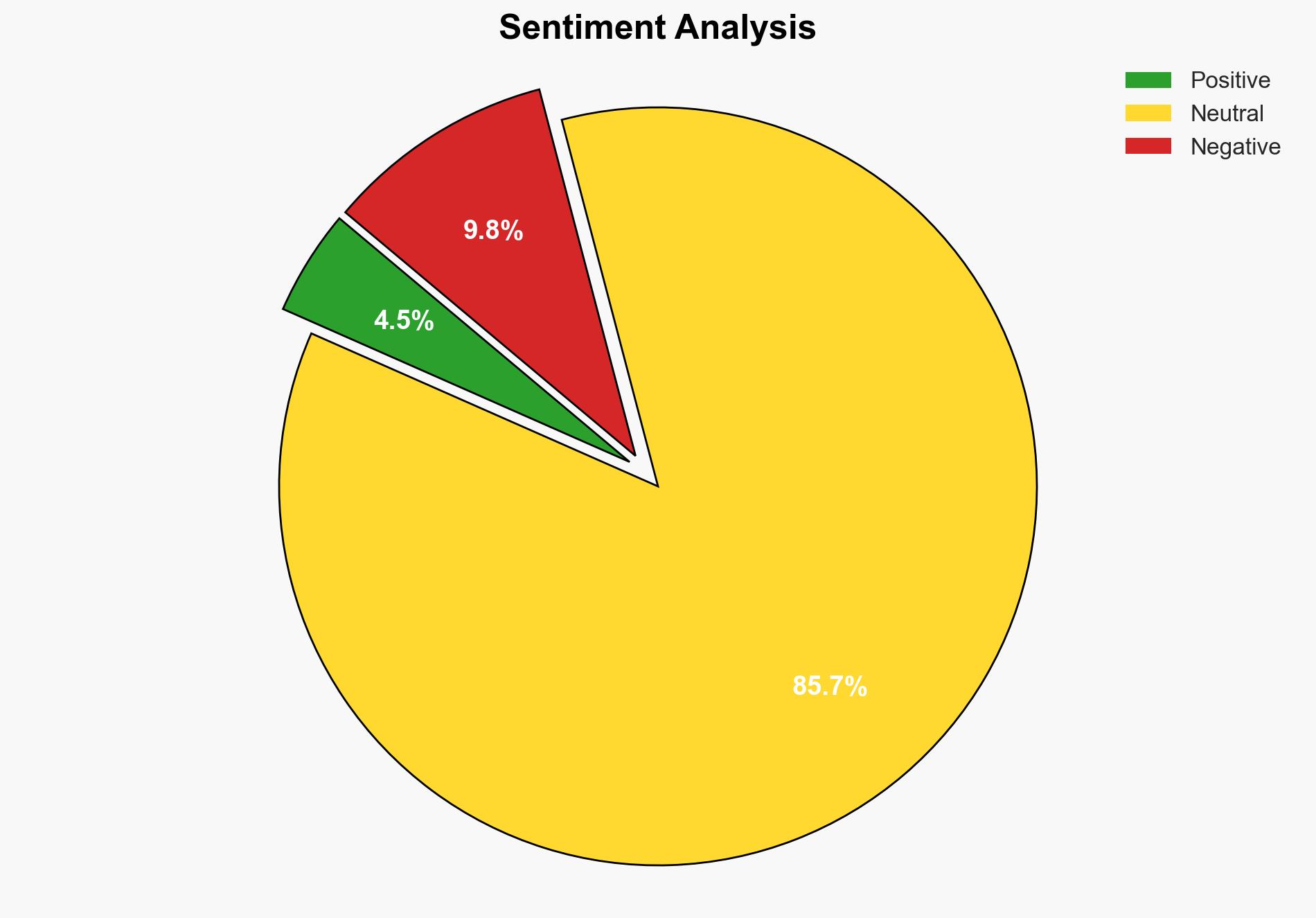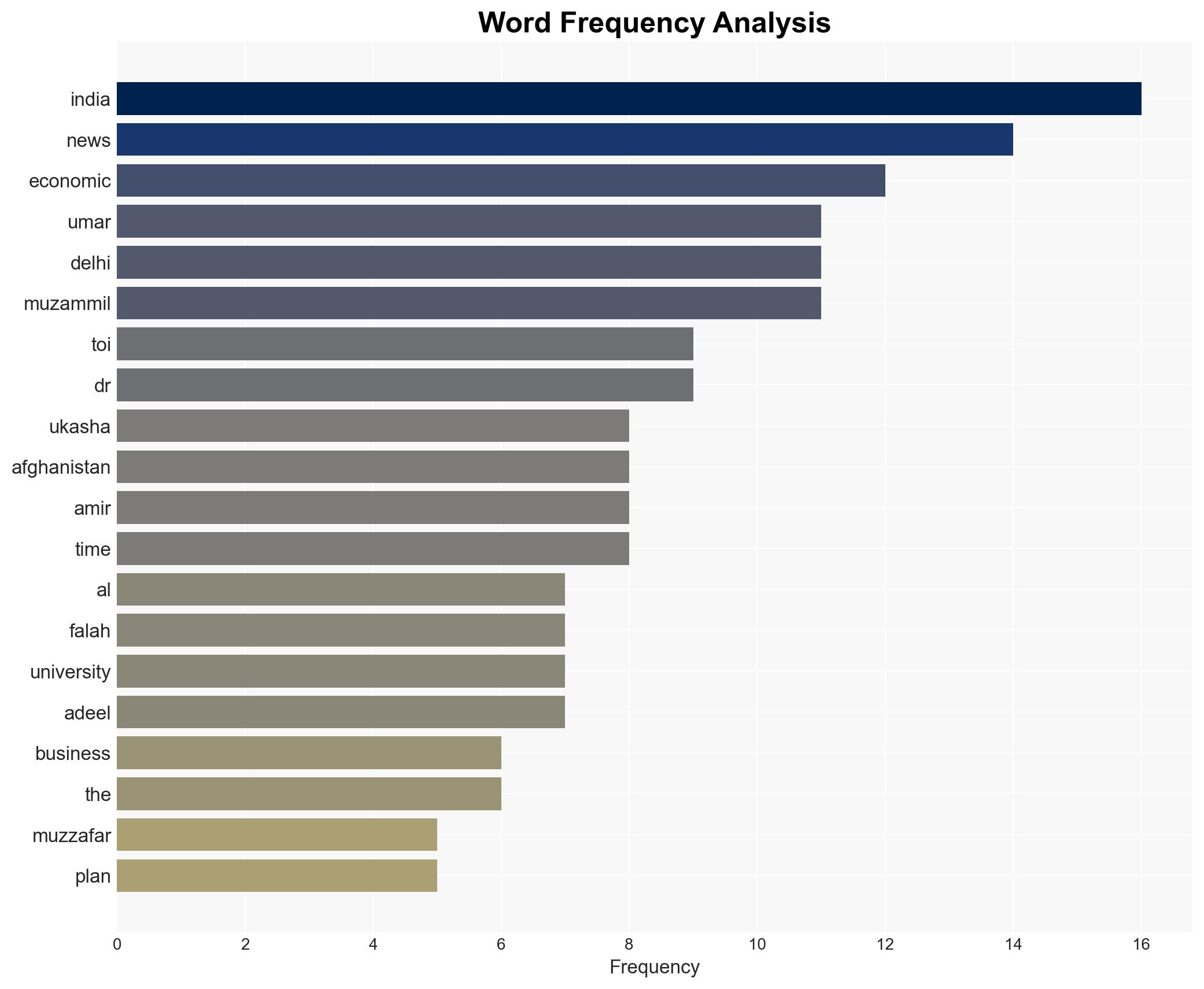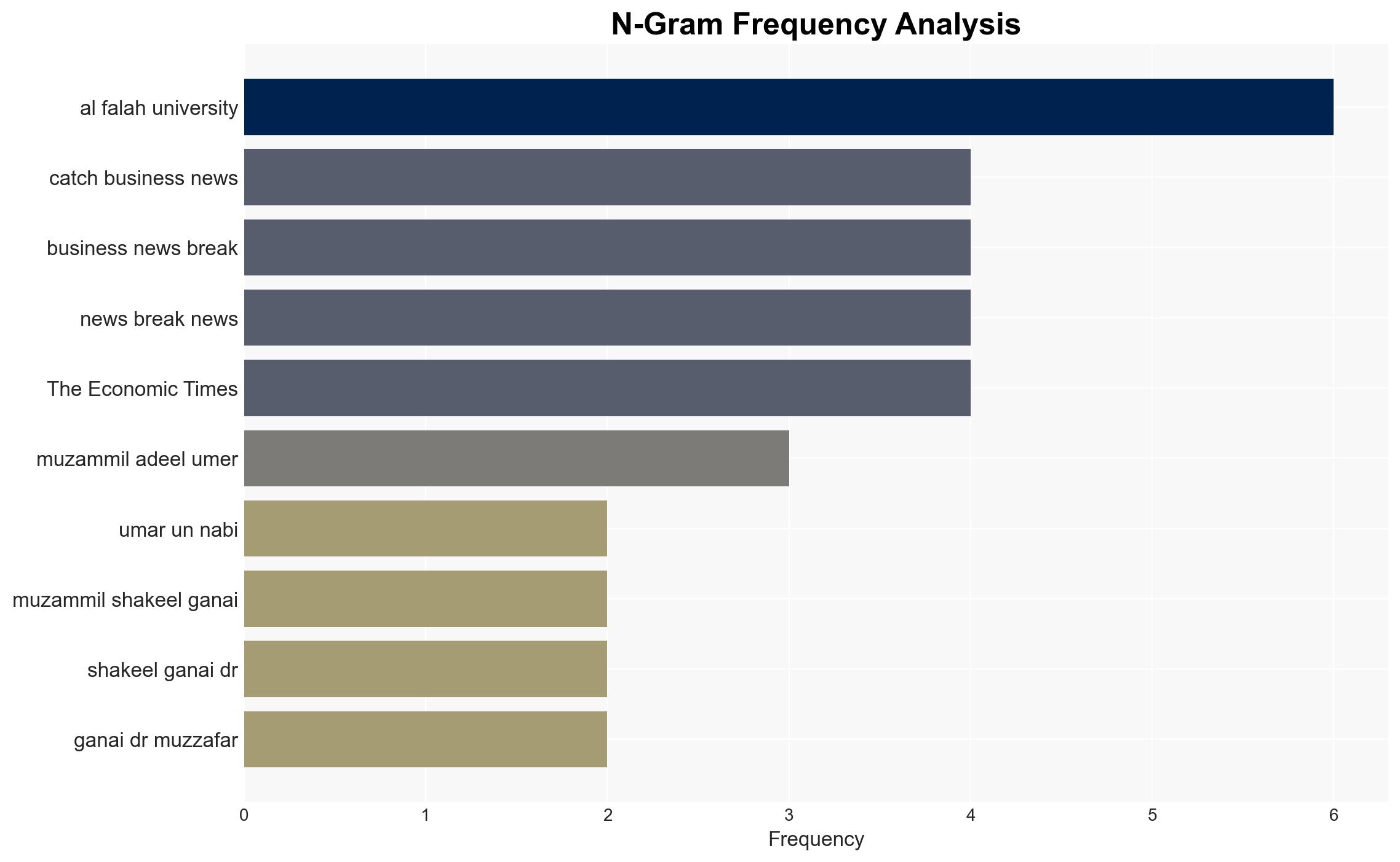Delhi blast investigation traces turning point to Turkiye meeting arranged by Pakistan handler
Published on: 2025-11-21
AI-powered OSINT brief from verified open sources. Automated NLP signal extraction with human verification. See our Methodology and Why WorldWideWatchers.
Intelligence Report:
1. BLUF (Bottom Line Up Front)
The investigation into the Delhi blast indicates a significant international terror network involvement, with key coordination from handlers based near the Afghanistan-Pakistan border. The most supported hypothesis is that the attack was part of a broader strategy to destabilize India through coordinated terrorist activities. Confidence Level: Moderate. Recommended action includes enhancing intelligence-sharing mechanisms with international partners and increasing surveillance on suspected terror networks.
2. Competing Hypotheses
Hypothesis 1: The Delhi blast was orchestrated by a Pakistan-based handler, Faisal Hashim Ukasha, as part of a larger plan to execute multiple attacks across India, leveraging international networks for training and coordination.
Hypothesis 2: The attack was primarily a local initiative by radicalized individuals with limited international support, aiming to create chaos and fear within India.
Hypothesis 1 is more likely due to the evidence of international travel for training, the involvement of multiple countries (Turkiye, UAE, Afghanistan), and the structured communication via Telegram with handlers. Hypothesis 2 lacks support given the complexity and scale of the operation.
3. Key Assumptions and Red Flags
Assumptions: The handlers are operating with the knowledge and support of larger terror networks. The individuals involved are fully radicalized and committed to the cause.
Red Flags: The reliance on a single source (TOI) for critical information. The potential for misinformation or exaggeration of the network’s capabilities and reach.
Deception Indicators: The possibility that the meeting in Turkiye was a diversion to mislead investigators about the true operational base and intentions.
4. Implications and Strategic Risks
The involvement of international networks suggests a heightened risk of future attacks, potentially escalating to include cyber and informational warfare. Politically, this could strain India-Pakistan relations further and impact regional stability. Economically, increased security measures could affect trade and investment in affected areas.
5. Recommendations and Outlook
- Enhance intelligence-sharing with Turkiye, UAE, and Afghanistan to track and dismantle the network.
- Increase surveillance and monitoring of radicalization channels, particularly online platforms like Telegram.
- Best-case scenario: Successful disruption of the network through international cooperation.
- Worst-case scenario: Failure to act leads to multiple coordinated attacks across India.
- Most-likely scenario: Partial disruption with sporadic, smaller-scale attacks continuing.
6. Key Individuals and Entities
Faisal Hashim Ukasha, Dr. Umar Un Nabi, Dr. Muzammil Shakeel Ganai, Dr. Muzzafar Rather, Amir Rashid Ali, Jasir Bilal Wani.
7. Thematic Tags
Regional Focus, Regional Focus: South Asia, International Terror Networks, India-Pakistan Relations
Structured Analytic Techniques Applied
- Causal Layered Analysis (CLA): Analyze events across surface happenings, systems, worldviews, and myths.
- Cross-Impact Simulation: Model ripple effects across neighboring states, conflicts, or economic dependencies.
- Scenario Generation: Explore divergent futures under varying assumptions to identify plausible paths.
- Network Influence Mapping: Map influence relationships to assess actor impact.
Explore more:
Regional Focus Briefs ·
Daily Summary ·
Support us





